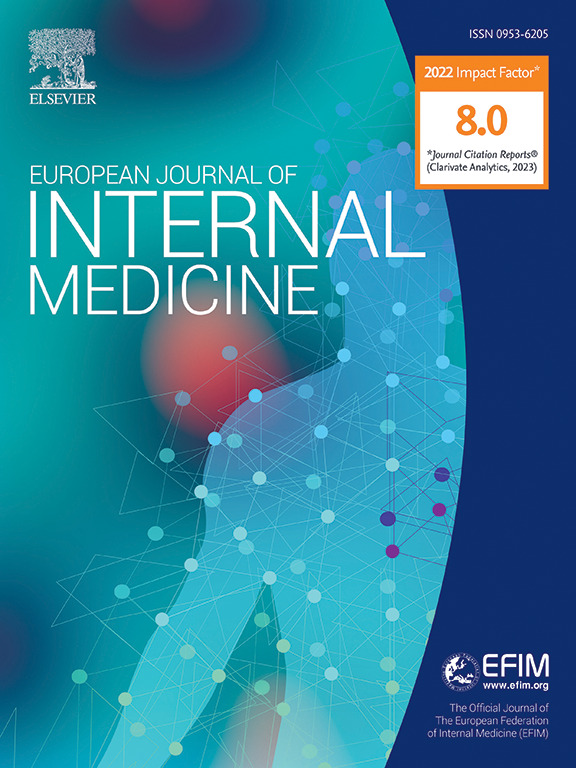Gliflozines use in heart failure patients. Focus on renal actions and overview of clinical experience
IF 5.9
2区 医学
Q1 MEDICINE, GENERAL & INTERNAL
引用次数: 0
Abstract
Use of type 2 sodium-glucose cotransporter inhibitors (SGLT2i) gliflozines have first been applied to treatment of diabetic patients. In this setting, unexpected benefits on concomitant heart failure (HF) were seen in large trials. This clinical benefit was initially traced back to their natriuretic properties and as such they were also included in the therapeutic armamentarium of HF treatment. However, further insight into their mechanism of action has clarified their complex interaction with kidney function which better explains their prompt effectiveness in ameliorating HF outcome in the long-term, independent of left ventricular ejection fraction (LVEF) phenotype and concomitant presence of diabetes and/or chronic renal disease.
This mainly results from the ability of SGLT2i to counteract the HF-associated hyperactivity of the sympathetic system and neurohormonal activation by modifying the pattern of renal tubular sodium and glucose reabsorption which results in curbing the overall sodium reabsorption. Their action results in decreased kidney workload and related oxygen consumption thus indirectly reducing sympathetic activity.
The complex renal functional changes associated with HF and their modifications during SGLT2i administration will be reviewed.
格列酮类药物在心力衰竭患者中的应用。关注肾脏作用并概述临床经验。
2型钠-葡萄糖共转运抑制剂(SGLT2i)格列酮类药物首先用于治疗糖尿病患者。在这种情况下,在大型试验中出现了对并发心力衰竭(HF)的意想不到的疗效。这种临床益处最初被追溯到它们的利尿特性,因此它们也被纳入了心力衰竭的治疗范围。然而,对其作用机制的进一步深入研究阐明了它们与肾功能之间复杂的相互作用,从而更好地解释了它们在长期改善高血压预后方面的迅速有效性,而不受左心室射血分数(LVEF)表型和同时存在的糖尿病和/或慢性肾病的影响。这主要是因为 SGLT2i 能够通过改变肾小管钠和葡萄糖的重吸收模式,抑制钠的总体重吸收,从而抵消与高血压相关的交感神经系统亢进和神经激素激活。它们的作用导致肾脏工作量和相关耗氧量减少,从而间接降低了交感神经的活性。将对与高血压相关的复杂肾功能变化及其在服用 SGLT2i 期间的变化进行综述。
本文章由计算机程序翻译,如有差异,请以英文原文为准。
求助全文
约1分钟内获得全文
求助全文
来源期刊
CiteScore
9.60
自引率
6.20%
发文量
364
审稿时长
20 days
期刊介绍:
The European Journal of Internal Medicine serves as the official journal of the European Federation of Internal Medicine and is the primary scientific reference for European academic and non-academic internists. It is dedicated to advancing science and practice in internal medicine across Europe. The journal publishes original articles, editorials, reviews, internal medicine flashcards, and other relevant information in the field. Both translational medicine and clinical studies are emphasized. EJIM aspires to be a leading platform for excellent clinical studies, with a focus on enhancing the quality of healthcare in European hospitals.

 求助内容:
求助内容: 应助结果提醒方式:
应助结果提醒方式:


